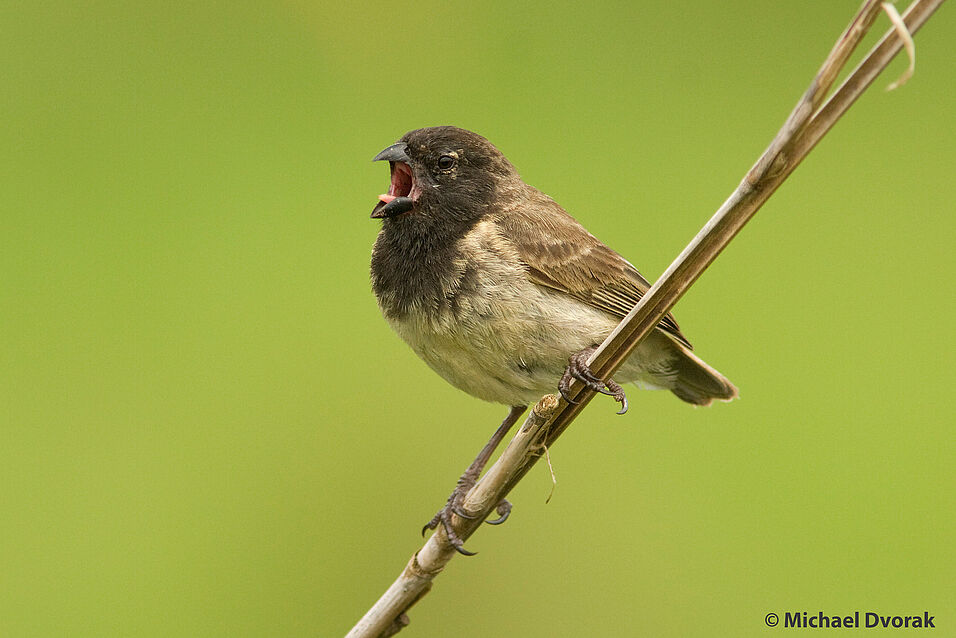Abstract
Females of many bird species prefer mating with older males, presumably because they provide superior parental care and possibly superior genes. A previous study found that female small tree finches (Camarhynchus parvulus ) preferred pairing with old males and had a higher breeding success when paired with old males because their nests were more concealed, higher up in the canopy and therefore less likely to be depredated. However, causes for brood loss have changed over the last decade: predation of small tree finch nests has decreased, whereas brood losses due to parasitism by the invasive parasitic fly Philornis downsi have increased. In the present study, we investigated (a) how the change in predation and parasitism by P. downsi influenced the breeding success of small tree finches, (b) whether there were still differences in breeding success between young and old males, (c) whether P. downsi infestation had a differential effect on nests of young and old males and (d) whether young and old males differed in foraging success. During 2012–2016, we found an overall low influence of predation and a high influence of P. downsi , but neither differed between nests of young and old males. Nests of old males had more fledglings than those of young males. However, the difference in breeding success disappeared when P. downsi numbers were experimentally reduced by injecting an insecticide into nests. This indicates that older males were able to compensate for the detrimental effects of parasitism.
Wappl, C., Cimadom, A., Filek, N., Heyer, E., & Tebbich, S. (2020). Under adverse conditions, older small tree finch males (Camarhynchus parvulus) produce more offspring than younger males. Ethology. https://doi.org/10.1111/eth.13069

